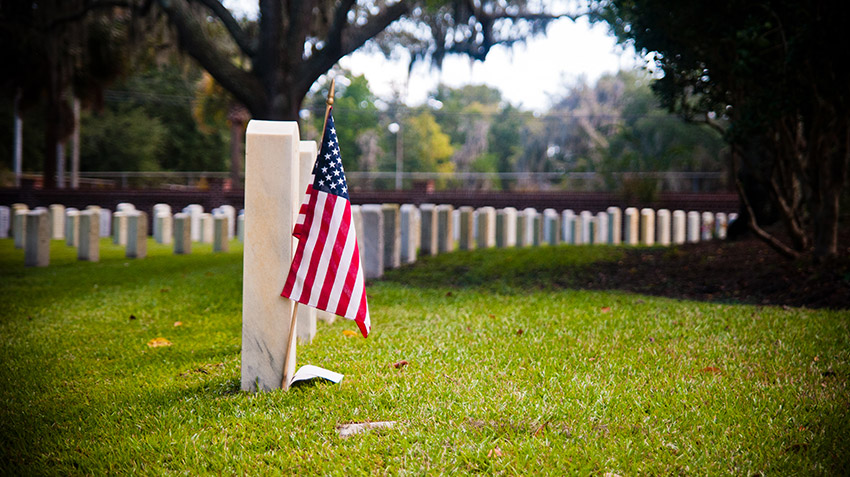
The solemn and profoundly significant act of laying a fallen hero to rest eternally honors their sacrifice and service for their country.
It’s a time for mourning, introspection, and honoring both the courageous men and women who gave their lives defending their nation and its people. Military funeral rites and rituals are a significant responsibility and a duty taken on by the state, which calls for careful preparation and the utmost respect.
Ensuring that military members are buried with dignity is made possible in large part by the Graves Registration Military. A “Graves Registration Service” was established during times of war to take care of deceased military members buried outside of American territory. Personnel from the Graves Registration Service, or the GRS, were furthermore compelled to care for dead civilians, allies, and enemies when necessary due to the nature of the conflict.
In this blog post, we will explore the importance of the GRS and provide a comprehensive guide on how they together with the assistance of a funeral home facilitate the military burial process.
Understanding the role of the Graves Registration Service
The major goal of the Graves Registration Service, a vital branch of the American armed forces, is to honor deceased troops with a dignified burial procedure. Beginning with the removal of remains from the battlefield, their duties span several phases of the procedure.
These devoted professionals put forth great effort to find, recognize, and record the fallen people to make sure they receive the recognition they deserve and are safely delivered to the care of their families. The GRS team frequently consists of forensic specialists, whose duty is to carefully examine the bones to determine who the fallen person was.
Advanced scientific methods used in this identification process include DNA analysis, dental records analysis, and other forensic techniques. The remains are then prepared for transportation to their final resting place once they have been identified.
Notifying the family and informing loved ones
Notifying the family is the first stage in the process of burying a soldier who has died in the line of duty. Usually, the family receives disheartening news from a military casualty assistance officer or chaplain, who also offers support and helps the family with the appropriate steps in the process of funeral planning for veterans.
The shocking news of the death of a loved one can be an overwhelming state of emotions. Therefore, being appointed with the responsibility to overlook a military burial service which takes more work to coordinate than a normal funeral may be a task that you’re unready to handle.
But to guarantee a smooth and dignified return home for the deceased, you can obtain the assistance of a funeral home, as they are equipped with the expertise and experience to carry out a military burial while coordinating with the Graves Registration Service.
Coordinating the burial process
The GRS oversees the logistics of transfer after the remains have been located and identified. To make sure the remains are handled with the utmost respect and care, they work in cooperation with other necessary military units and agencies, transportation companies, and the appropriate authorities.
Military funerals are organized with assistance from the GRS, which also works closely with families and funeral homes to understand their preferences for the burial ceremony. Once they have established the exact preferences, funeral homes organize the funeral service and other necessary arrangements.
This support provides the family of the deceased with the reassurance they need and offers them time to grieve.
Taking care of the upkeep of the grave
The GRS contributes significantly to the upkeep and preservation of military cemeteries.
They make certain that these holy grounds are meticulously preserved so that family members and generations can visit and pay their respects.
In addition, the GRS offers assistance and resources to bereaved families, supporting them during their difficult times through means such as counseling.
Recording the death in a system
The Grave Registration Service relies on accurate and current records to function. Whether you choose a manual or automated approach, the most important step is to build a well-organized database, which includes crucial facts such as the location of the grave, the dates of the burial, the deceased’s personal information, and the next of kin’s contact information.
The GRS can work with a funeral home to preserve this data and documents for the family’s convenience if they were ever to look for it in the future.
Due to well-organized databases and record-keeping systems, families can now locate the grave spot of their loved ones easily.
A funeral home together with the GRS can assist you in planning a respectable military burial with the family’s preferences in mind.
There are many procedures you need to follow when dealing with a loved one’s military burial arrangements. And while this may be a daunting task for someone who is in the process of mourning, a funeral home can assist you in making sure that everything is done accordingly.
The Grave Registration Service along with the help of a professional funeral home can help preserve memories for future generations by putting in place a reliable record-keeping system, helping with transportation, and coordinating with the family.



